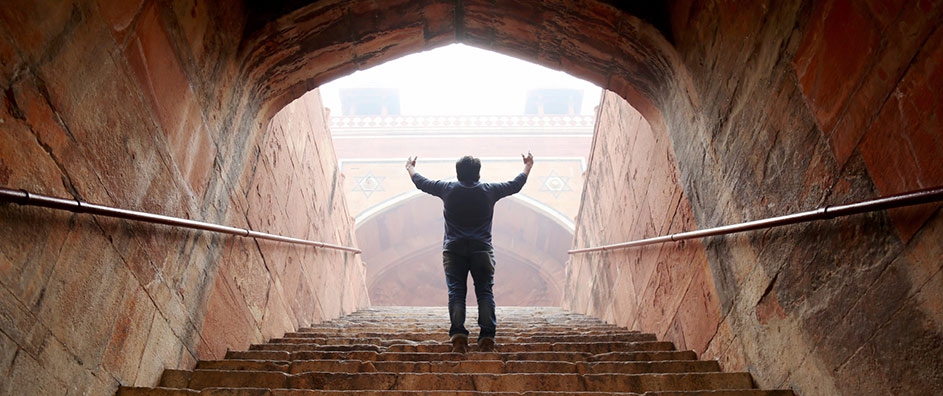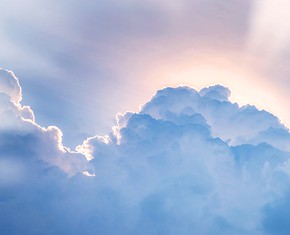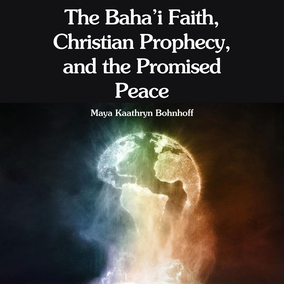The views expressed in our content reflect individual perspectives and do not represent the authoritative views of the Baha'i Faith.
As I hope I explained clearly and extensively in my book The Purpose of Physical Reality, our participation in those activities and objectives that are of merit both to ourselves and to others, do not admit excess.
We cannot be too virtuous or perform too many righteous deeds. But as I try to make plain in that same book, the objective of the metaphorical or dramatic nature of our life’s activities is to practice in symbolic forms the inner spiritual qualities we possess or wish to acquire. In this sense, a Baha’i life is a laboratory wherein we are challenged to develop those qualities that will enhance our own character and create an environment that will be conducive to others accomplishing the same objectives:
Religion, moreover, is not a series of beliefs, a set of customs; religion is the teachings of the Lord God, teachings which constitute the very life of humankind, which urge high thoughts upon the mind, refine the character, and lay the groundwork for man’s everlasting honour. – Abdu’l-Baha, Selections from the Writings of Abdu’l-Baha, p. 52.
My brother William understood this, practiced this principle in his life’s work, and left behind a chorus of those whom he inspired to do the same. Nevertheless, I suspect that at seventy years of age, having accomplished most of what he had set out to do, he was not disappointed when he lay down for a nap that afternoon in November of 2005 and woke up in the realm of the spirit.
 I, on the other hand, am not ready to leave this life. Most of the time, I love what I do and I love this time in my life. I am retired after teaching at universities for forty-five years. I love this old house out in the country with its cozy wood paneled rooms, the stone fireplace and a view of the pasture from each window. I love my small farm and my animals and my plants and the pond. I particularly love working the front loader on my Kubota L3130 tractor. It’s as if the hefty toy Tonka truck I had in my sandbox has come to life with me inside it and I am able to lift huge limbs or mounds of soil with the flick of a lever.
I, on the other hand, am not ready to leave this life. Most of the time, I love what I do and I love this time in my life. I am retired after teaching at universities for forty-five years. I love this old house out in the country with its cozy wood paneled rooms, the stone fireplace and a view of the pasture from each window. I love my small farm and my animals and my plants and the pond. I particularly love working the front loader on my Kubota L3130 tractor. It’s as if the hefty toy Tonka truck I had in my sandbox has come to life with me inside it and I am able to lift huge limbs or mounds of soil with the flick of a lever.
In the morning I write. In the afternoon I work outside. In the evening I set a fire in the winter or watch the stars in the fall and spring. For me, at least for now, this is paradise enough. I can be as drab as dust inside at my writing desk, and within five minutes of stepping outside into the field, I am at peace. I am at home in this world with its trees, the fields, the birds, the chickens, my dog, my tools (whether manual or motorized).
I love my wife and she loves me and all that I love, and daily works her garden until it blooms in a chorus of edibles and flowers. The cows come when I call, and Teddy, a runt bull who has been with me since his mother was slain by a truck, loves for me to brush him and scratch around his horns and his ears. I love the Sandhill cranes and their raucous call and the whispered swish of their wings in the evening when they fly overhead returning to the swamp after feeding in our fields.
I love the silly egrets with their impossible beaks and their deft scamper following behind the tractor to peck up juicy bugs when I till the field or top the pasture grass with my bush hog. I love the fish leaping in the pond snapping the flies, and I love to watch the burn pile after I coat it with kerosene a couple of times a year to watch the scraps of dead limbs start a joyous blaze to celebrate the raw beauty and power of fire, the infinite colors of flame eating up chicken bedding, scraps of lumber, defunct fence posts. Afterward, there remains only a small pile of ashes, and in a few days I will begin another pile.
For a couple of weeks each spring, a pair of blue birds perch on the fence outside my office window, and for about a week a flock of transient robins heading up to Georgia and North Carolina take a rest in our oaks. But the sassy fox squirrels scurry around all year long from limb to limb among the same trees in the side yard, dashing in circles, screeching to a halt, then doing a full back flip for no apparent reason I can discern.
Four months of the year the same kestrel waits atop the lightening rod at the corner of the fence scouring the field for his moveable feast. There are wrens and sparrows and finches and fly-catchers, and swifts, and ospreys, hawks, doves, crows, majestic giant blue herons, and an occasional bald eagle.
Down the road at the next farm, Tim Shepherd has a flock of peacocks he brought up decades ago from Key West at the behest of old CW Cone, the now deceased rancher who built the house we now occupy. Sometimes the gauche colored peacocks perch in the oak that the hurricane brought down two years back. Like sentinels they roam daily up and down the road warning us of every passing truck they think is invading their territory, and their piercing call sounds ever so much like a small child screaming, “heeeelllp! Helllp!”
A few years ago such a call would have startled me, and the morning birds would have interrupted my sleep. Now I find all this background noise quite pleasant, whether it is Scrappy the rooster heralding the sun, the horse across the pond whinnying for oats, the braying donkey supposedly scaring away the coyotes, or the steady lowing of cattle from all directions.
On summer nights I may hear a hoot owl or the coyotes’ call from the clump of trees atop the hill that was a battle field in the Seminole wars. When we walk beyond the pasture into the trees, we find the bare-bone remains of a calf that a pack of coyotes managed to separate from its mother. Death is all around us here, but it’s expected.
I have come to like the people, the small town people who have lived here for generations, good Christian country folk with roots, folks whose families have farmed or raised livestock here. They share each other’s pain and loss. They know everything I do through some network of communion from which I am mostly excluded. I never see them looking because when I am outside, my eyes are focused on the earth.
I suppose they notice what the “professor” is doing with CW’s old house as they rumble by in their pickups. For the first three years, they probably expected me to give up doing for myself, thinking I would hire someone to work for me, the way CW did. They are more cordial now that I bought a used tractor, a twenty-year-old pickup, built new fences, fixed the old pump to irrigate the garden, and constructed a chicken coop that has withstood two hurricanes.
I know that Frank’s wife is on chemo again. I know that Richard who sells the fruit trees at Hawkins’ Corner is recovering nicely from his by-pass surgery, that Janice is adjusting to the death of her husband James who got lung cancer from working in the mines, that Ken’s wife is doing better with her kidney stones. Ken, who is my age, is starting to become aware that his arms aren’t as well muscled as they were just a couple of years ago—we sometimes compare scars from football surgeries. But he still works twelve-hour days in the fields, on his tractors, or tending his cattle.
Surrounded by so much life and by death, I think of my brother William in the next world and wonder.
You May Also Like
Comments

















Thank you for your body of work. I have read almost all of your books, and am going back through "Close Connections" again.
Perry Rock
You paint a lovely portrait of life in the country.....so similar to mine except we have Winter here......easy to fall in love with one\'s surroundings out here in the sticks.